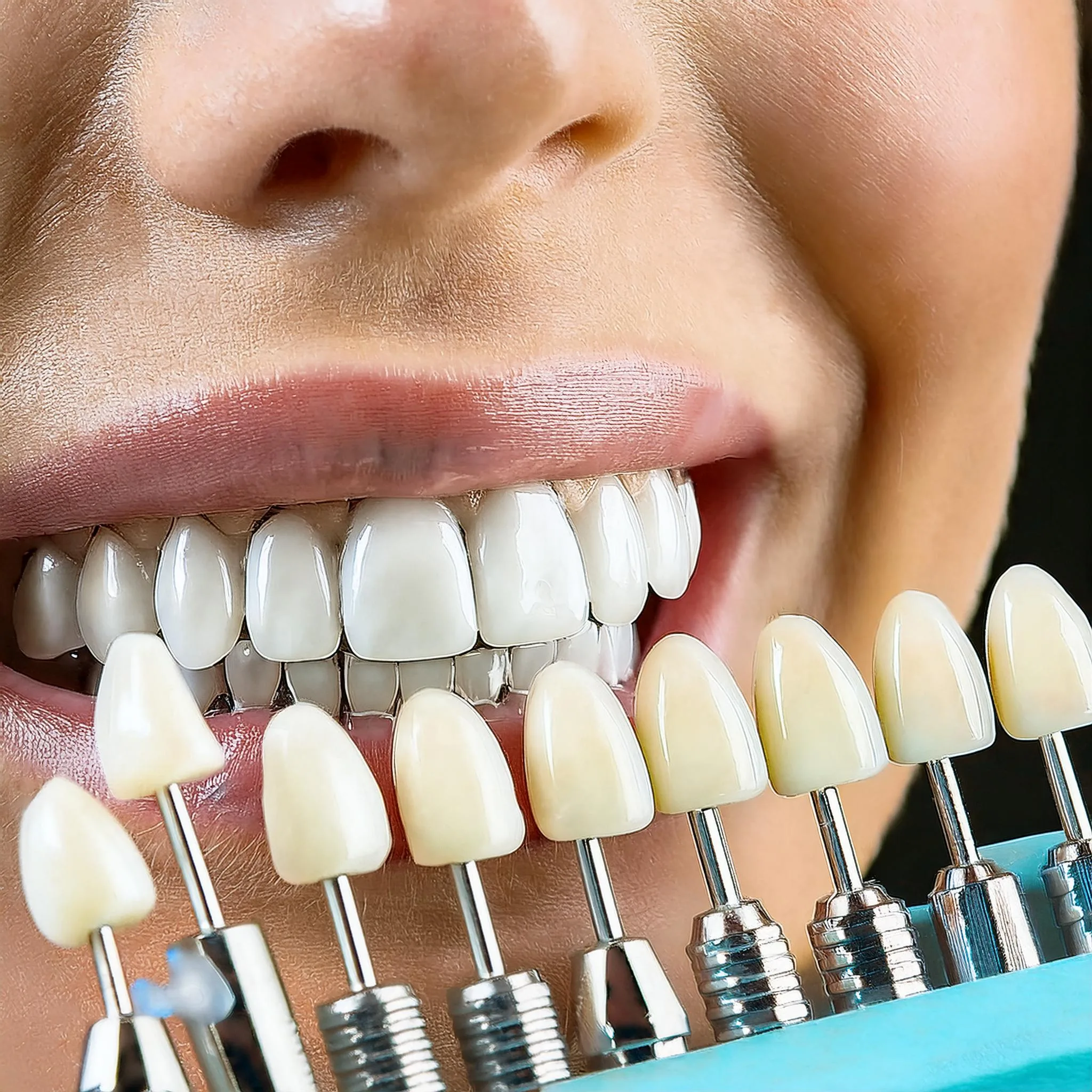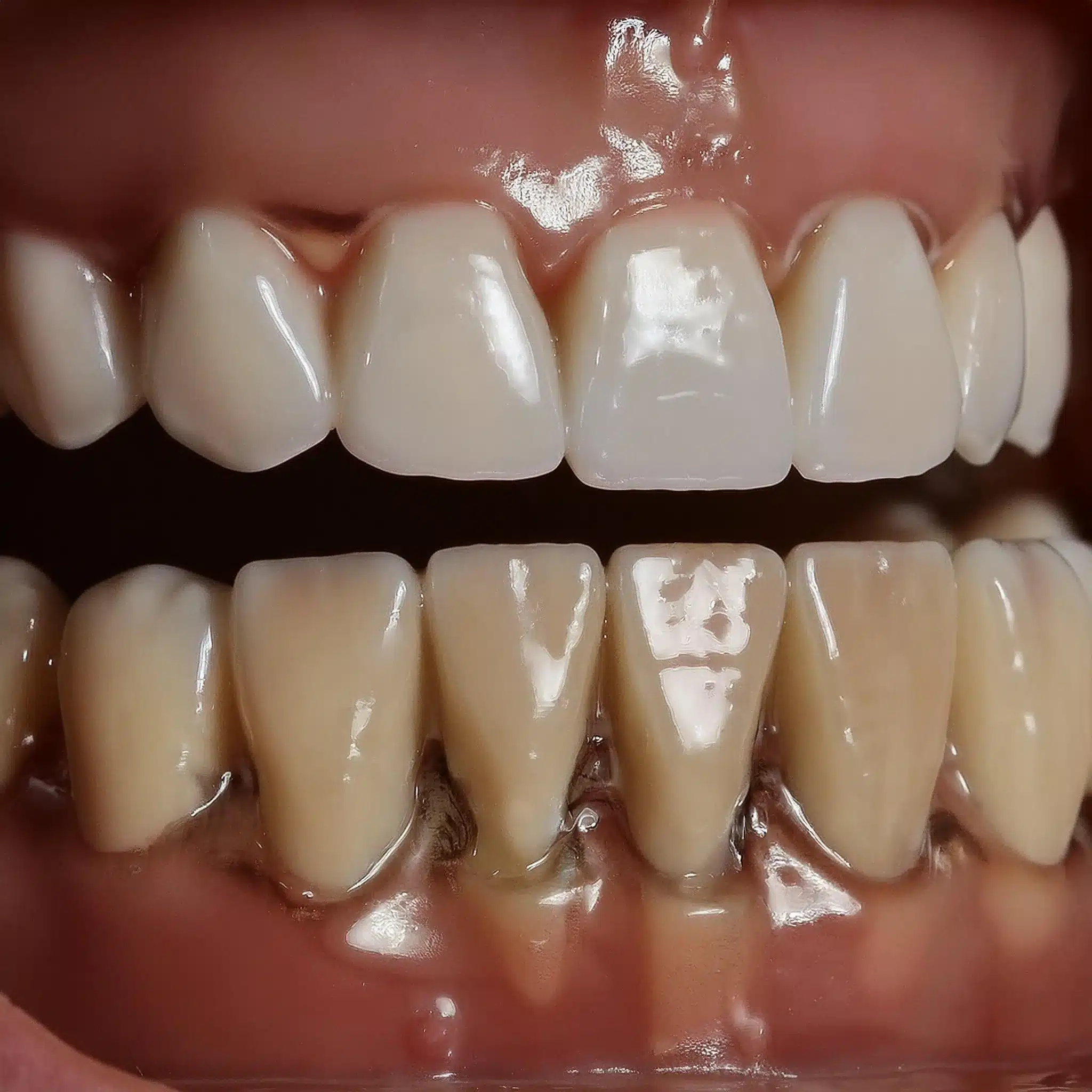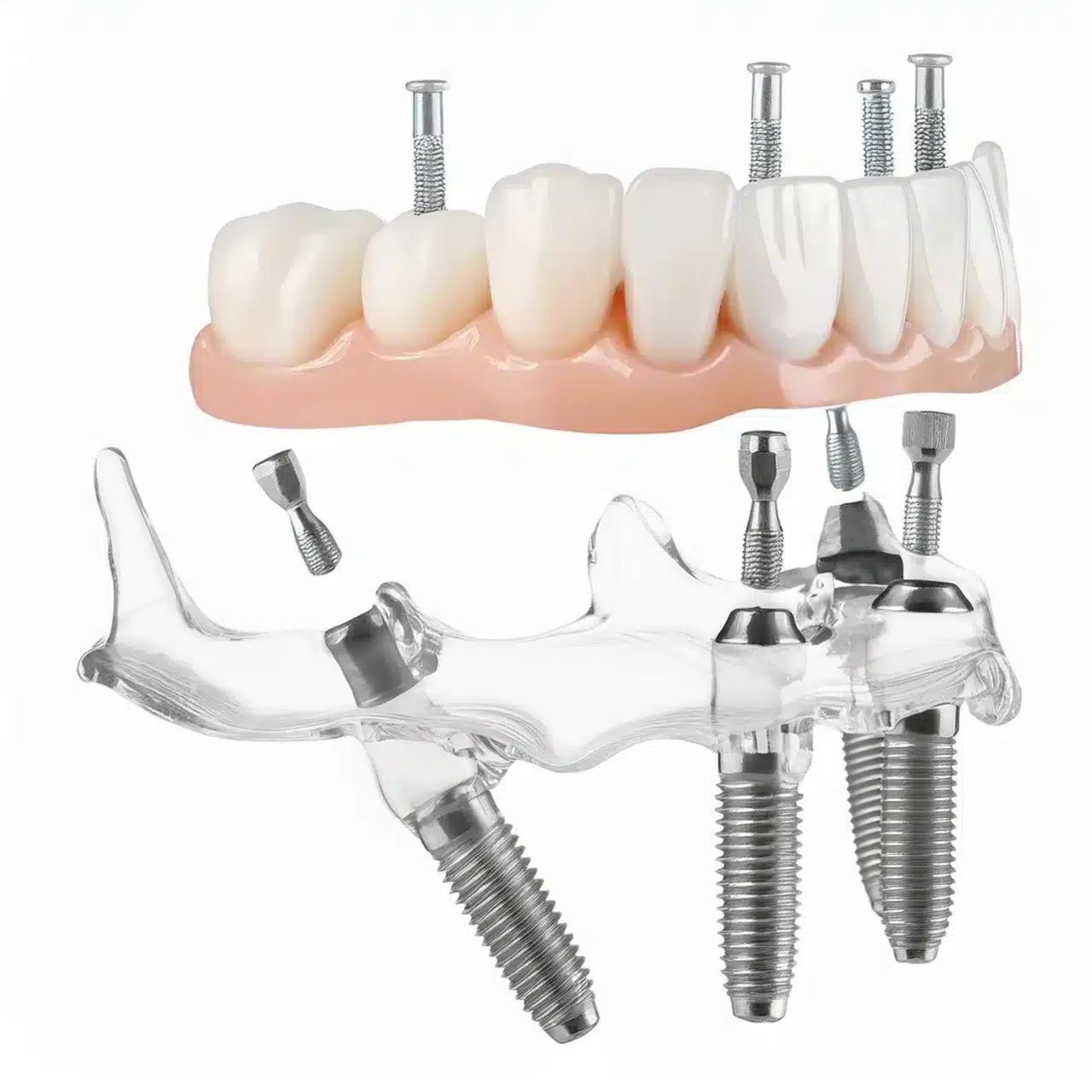Thinking of dental implants but not sure of the benefits?
Find out how dental implants can transform your smile and oral health, addressing your concerns about durability, aesthetics and functionality.
What are the Main Advantages of Dental Implants?
The main advantages of dental implants are:
Natural look and feel
Long-term solution (up to 20 years or more)
Prevents bone loss
Keeps adjacent teeth stable
Restores cosmetic appearance
High success rate (98.9% at 3 years, 94.0% at 15 years)
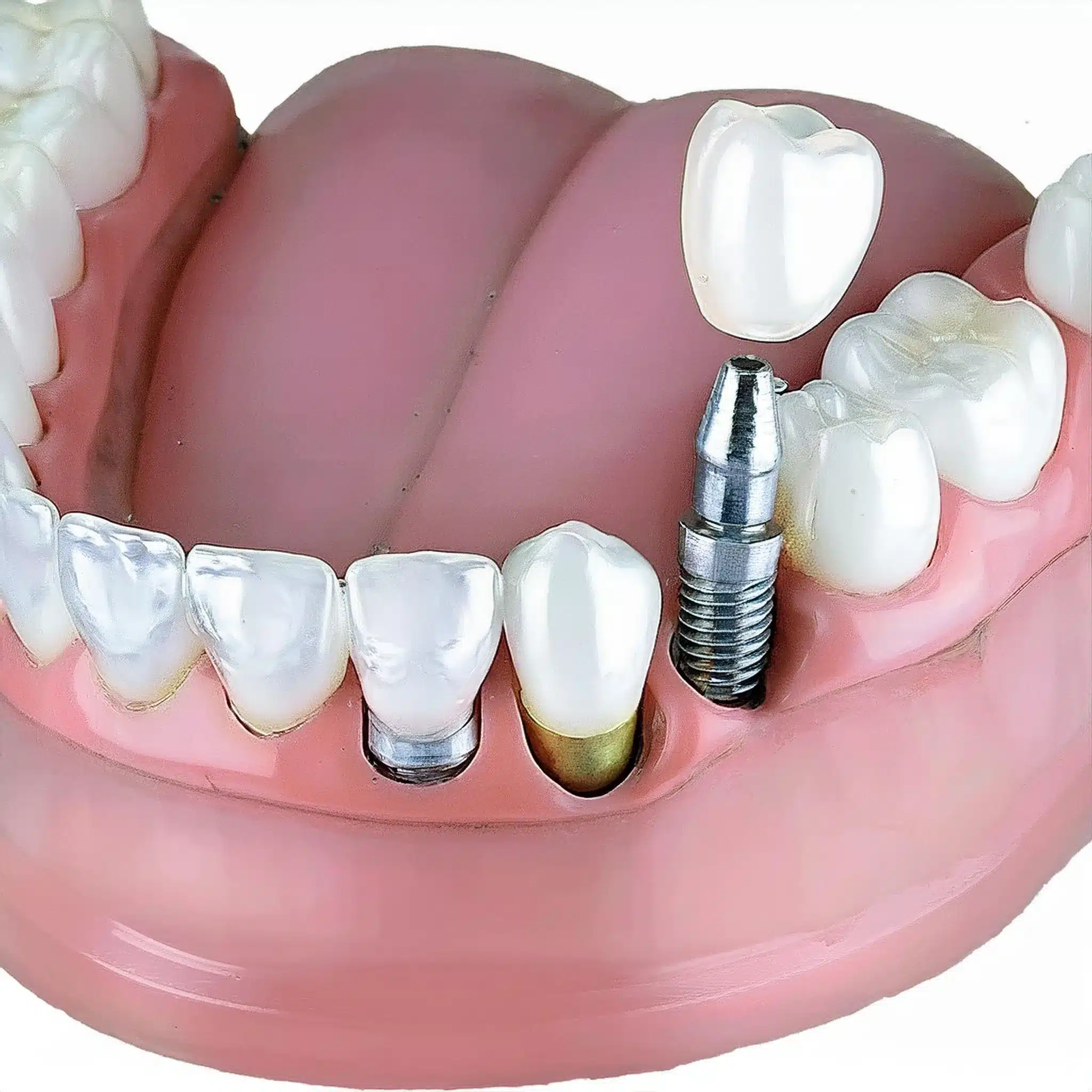
Pamje dhe ndjesi natyrale
Dental implants are known for their ability to look and feel like natural teeth.
This section explains how they do that and the functional benefits they offer.
Aesthetic and Natural Look
Dental implants have an unbeatable aesthetic appeal.
Made from biocompatible materials like titanium, they fuse with the jawbone to create a stable base for artificial teeth.
This process called osseointegration ensures that implants look and feel like natural teeth, maintain facial structure and prevent the sunken look that occurs with tooth loss.
According to studies, patients report a significant improvement in self-esteem and satisfaction with their appearance after getting implants (1).
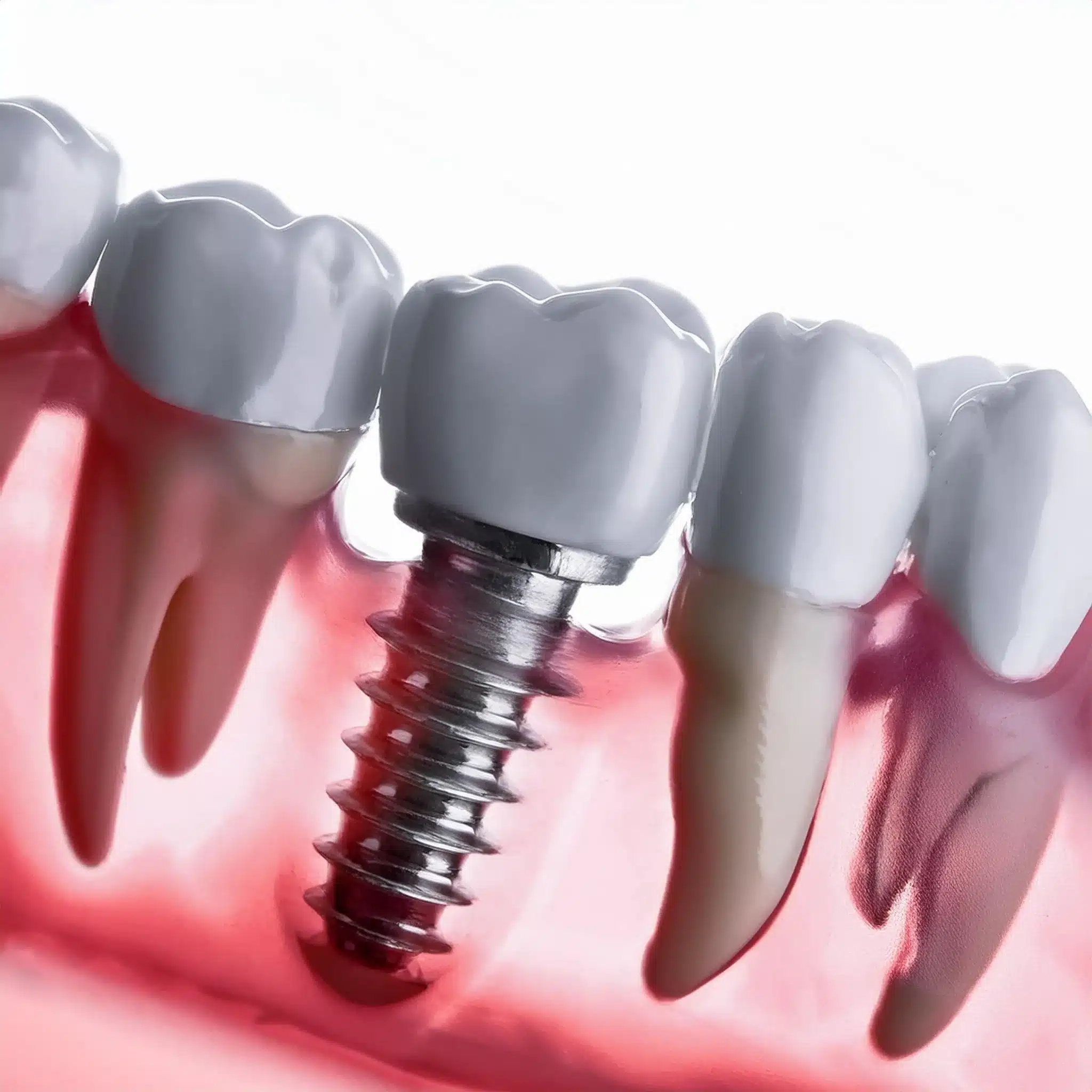
Functional Benefits
Beyond aesthetics, dental implants restore full oral function.
You can eat, speak and smile with confidence, just like with natural teeth.
Unlike dentures, implants don’t slip or require adhesives; they are secure.
This stability also helps improve chewing efficiency, which is important for proper digestion and nutrition.
Research shows that implants can withstand normal biting forces so it’s a reliable option for those looking for a long-term solution to tooth loss (2).
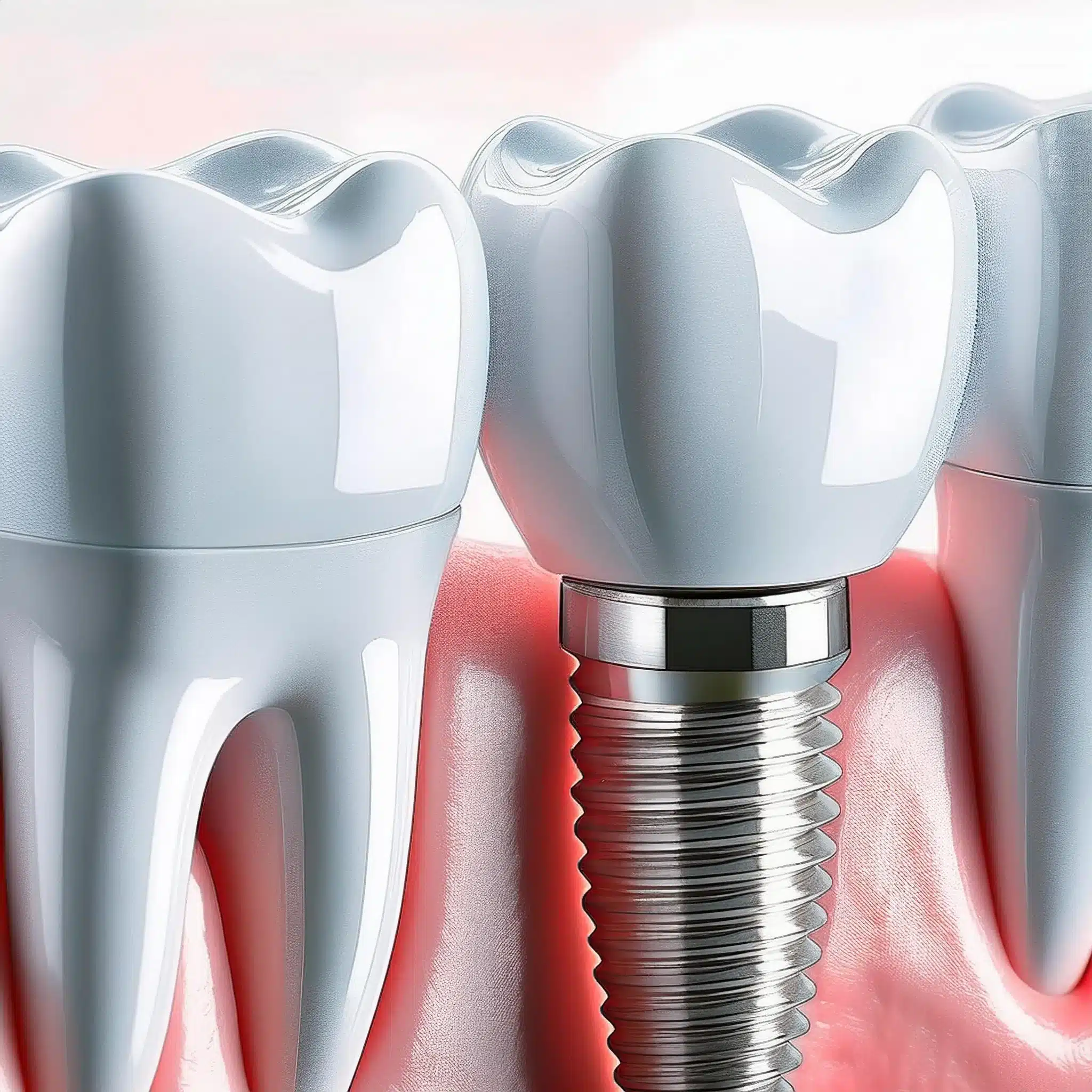
Longevity and Durability
Dental implants are known for their long-term durability so they’re the preferred choice for tooth replacement.
Long-term Solution
Dental implants are designed to be a long-term solution for tooth loss.
With proper care, they can last a lifetime, better than traditional dentures and bridges.
Research shows that dental implants have a 90% survival rate after 10 years (3).
This durability is due to the process of osseointegration, where the implant fuses with the jawbone, a stable and permanent base.
Dental Implant Success Rate
Dental implant success rate is very high.
Clinical research shows that it can be up to 95% over 10 years depending on factors like the patient’s oral hygiene, quality of bone, and expertise of the dentist (5).
This high success rate means dental implants are a solid solution for tooth replacement and give patients peace of mind and a long-term investment in their oral health.
| Time Period | Norma e suksesit | Source Reference |
|---|---|---|
| 3 years | 98.9% | (1) |
| 10 years | 90% | (3) |
| 15 years | 94.0% | (1) |
| 5 years | 95% | (5) |
Health and Comfort Benefits
Dental implants have health and comfort benefits, both oral and overall well-being.
Prevents Bone Loss
One of the health benefits of dental implants is that they prevent bone loss.
When a tooth is lost, the jawbone can start to deteriorate due to a lack of stimulation.
Dental implants mimic natural tooth roots, stimulate the jawbone, and maintain its density.
Research shows that implants can preserve up to 95% of the bone structure over 10 years, a much lower risk of bone loss compared to other tooth replacement options (4).
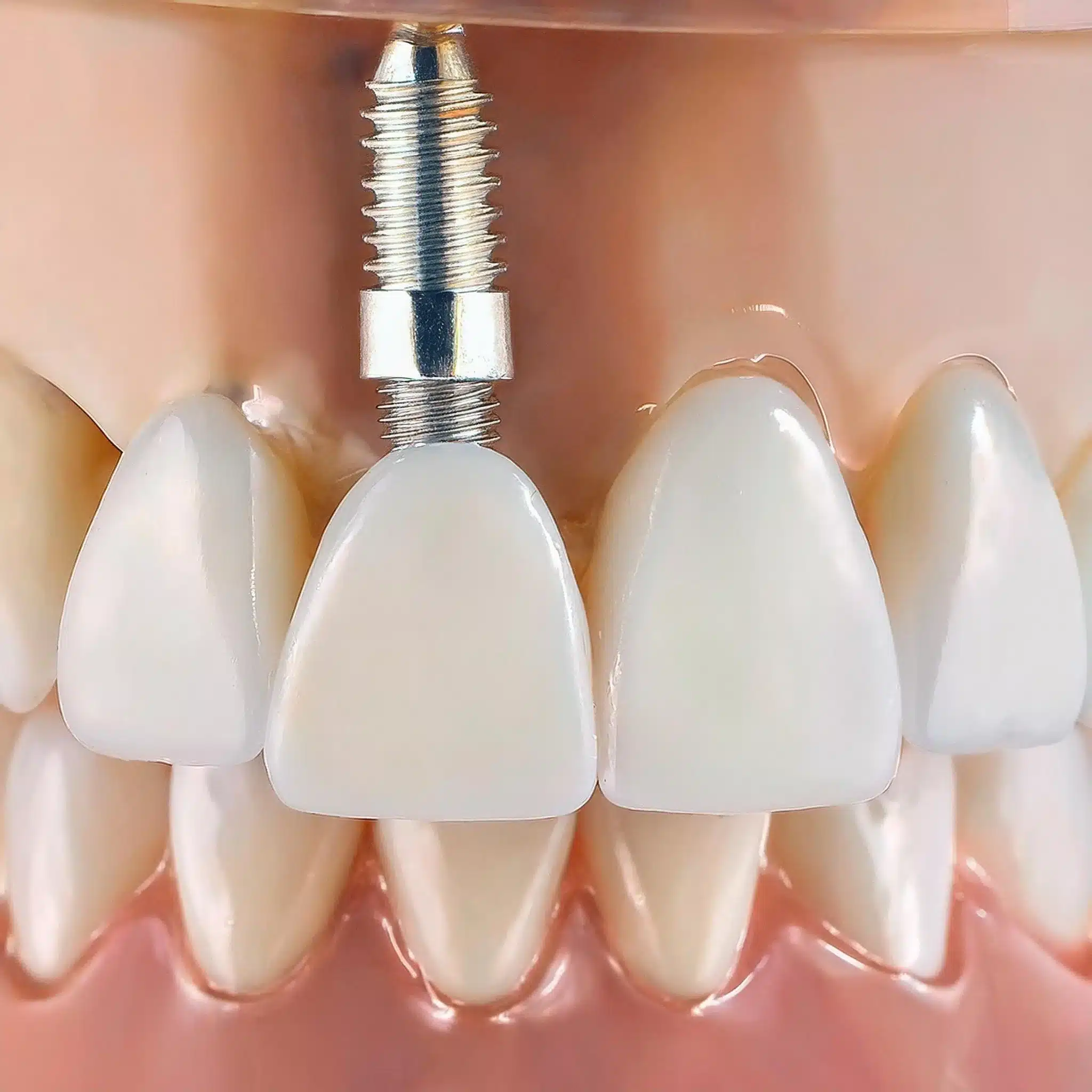
Keeps Adjacent Teeth Stable
Dental implants also keeps adjacent teeth stable.
When a gap is left by a missing tooth, surrounding teeth can move into the space and cause misalignment and bite problems.
Implants fill the gap, prevent movement, and keep neighboring teeth in place.
This stability is good for oral health and helps maintain a balanced bite, reducing risk of further dental problems (6).
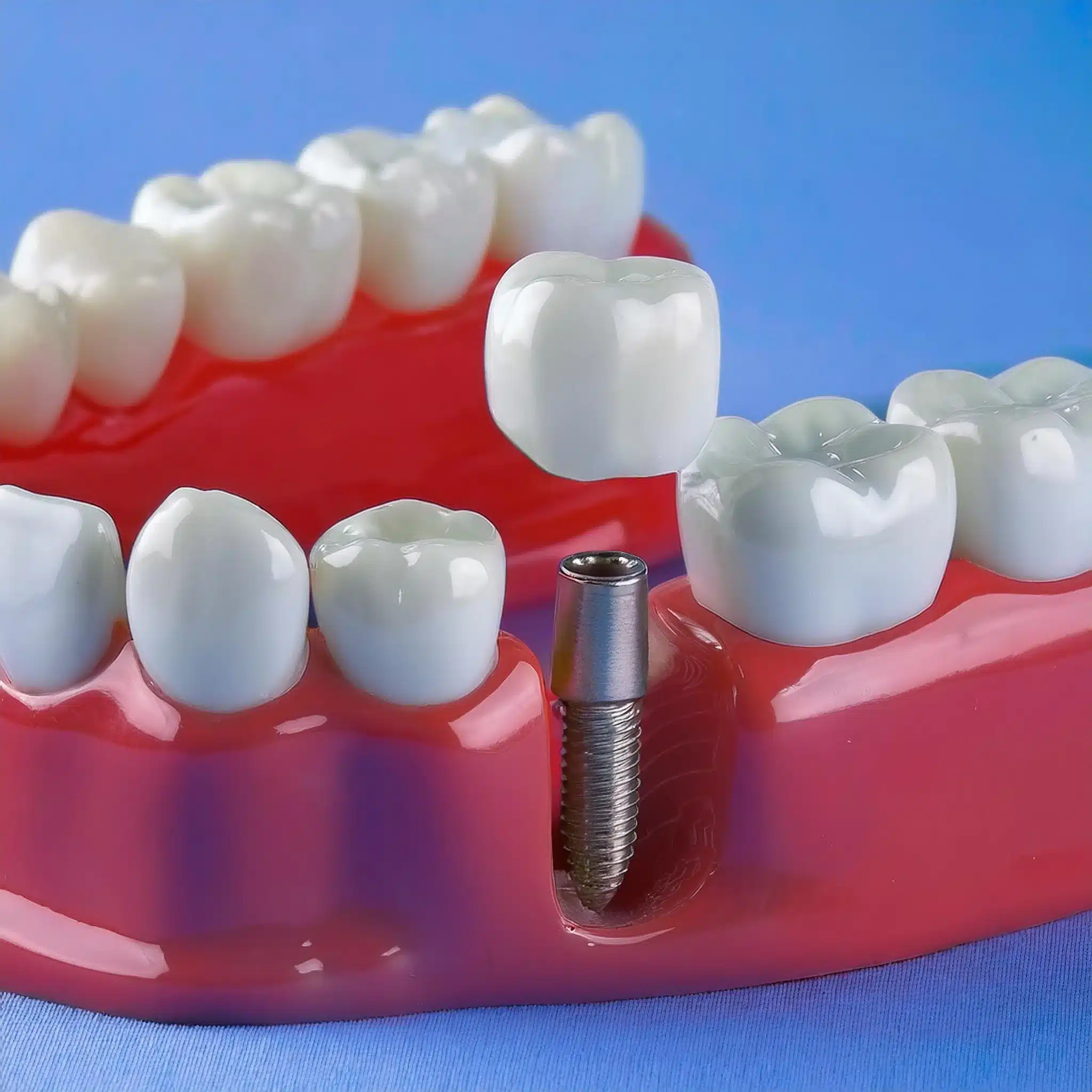
Restores Cosmetic
Beyond functional benefits, dental implants restore the cosmetic appearance of a full set of teeth.
They look natural and blend in with existing teeth, the overall smile.
This restoration not only boosts confidence but also supports facial structure and prevents the sagging or hollow look that can happen with tooth loss.
Patients often say they are more satisfied with their appearance and the aesthetic advantages of dental implants (5).
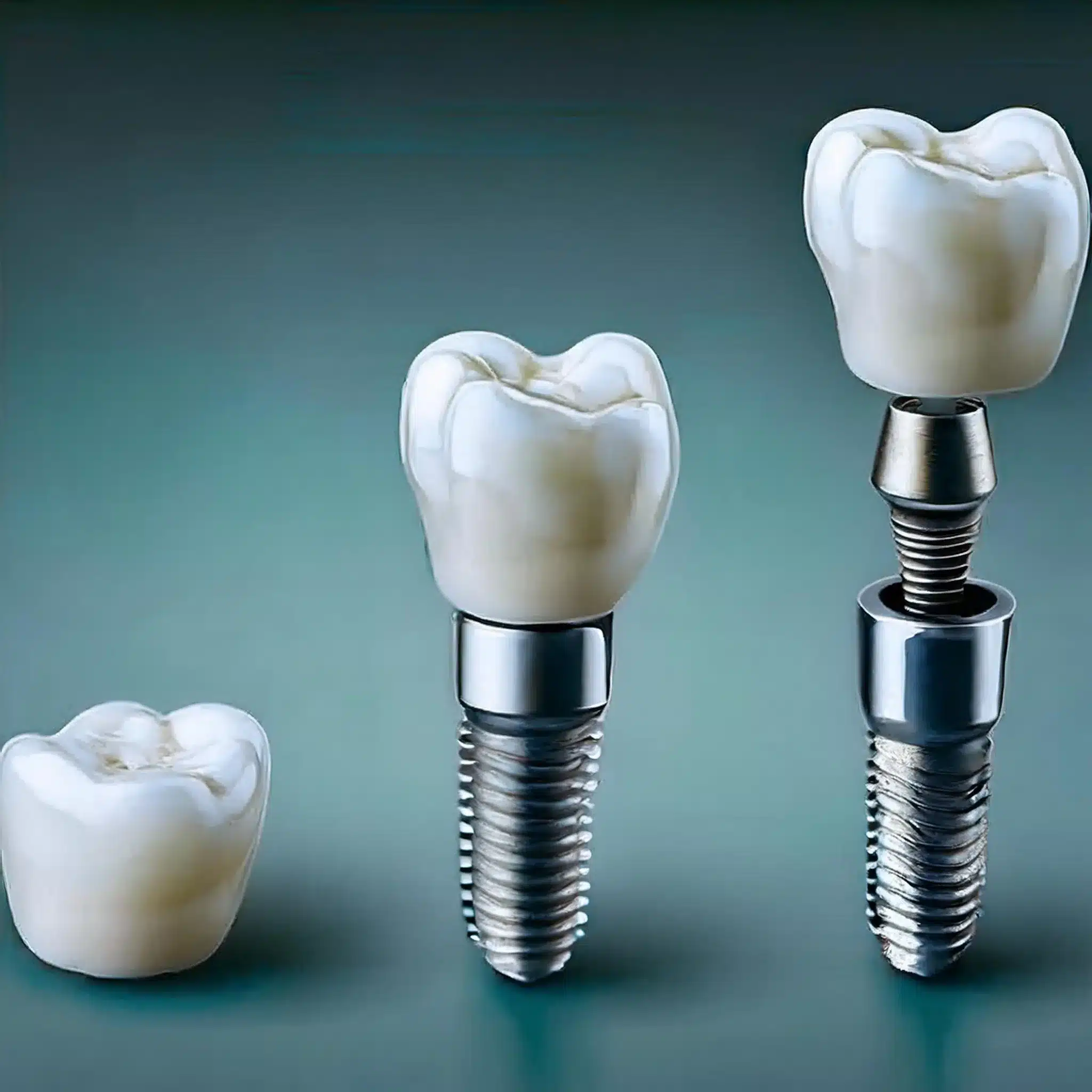
Dental Implant Pros and Cons
Know the pros and cons of dental implants to decide.
Advantages over Dentures and Bridges
Dental implants have several advantages over traditional dentures and bridges.
Unlike dentures, implants don’t need adhesives and don’t slip or move, a more secure fit.
Compared to bridges, implants don’t need to alter adjacent teeth; more of the natural tooth structure is preserved.
Research shows that patients with implants have higher satisfaction rates with oral function and aesthetics compared to those with dentures or bridges (6).
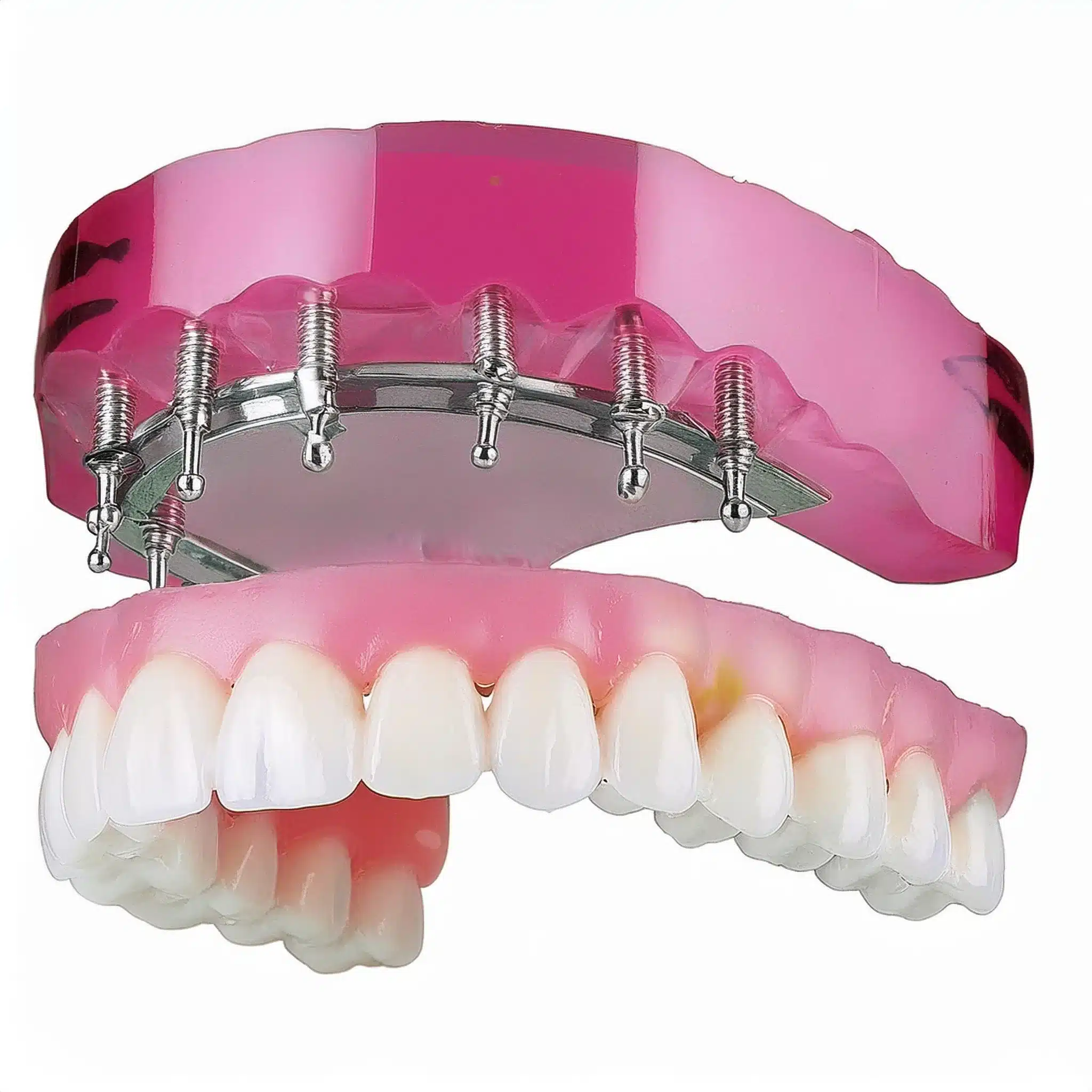
Dental implant Risks and Complications
While dental implants are safe and effective, there are risks and complications to consider.
These can be infection, nerve damage and implant failure.
Research shows that risk of implant failure is reduced when proper surgical technique and post-operative care are followed (5).
Patients should discuss these risks with their dentist to decide if they should proceed with implant treatment.
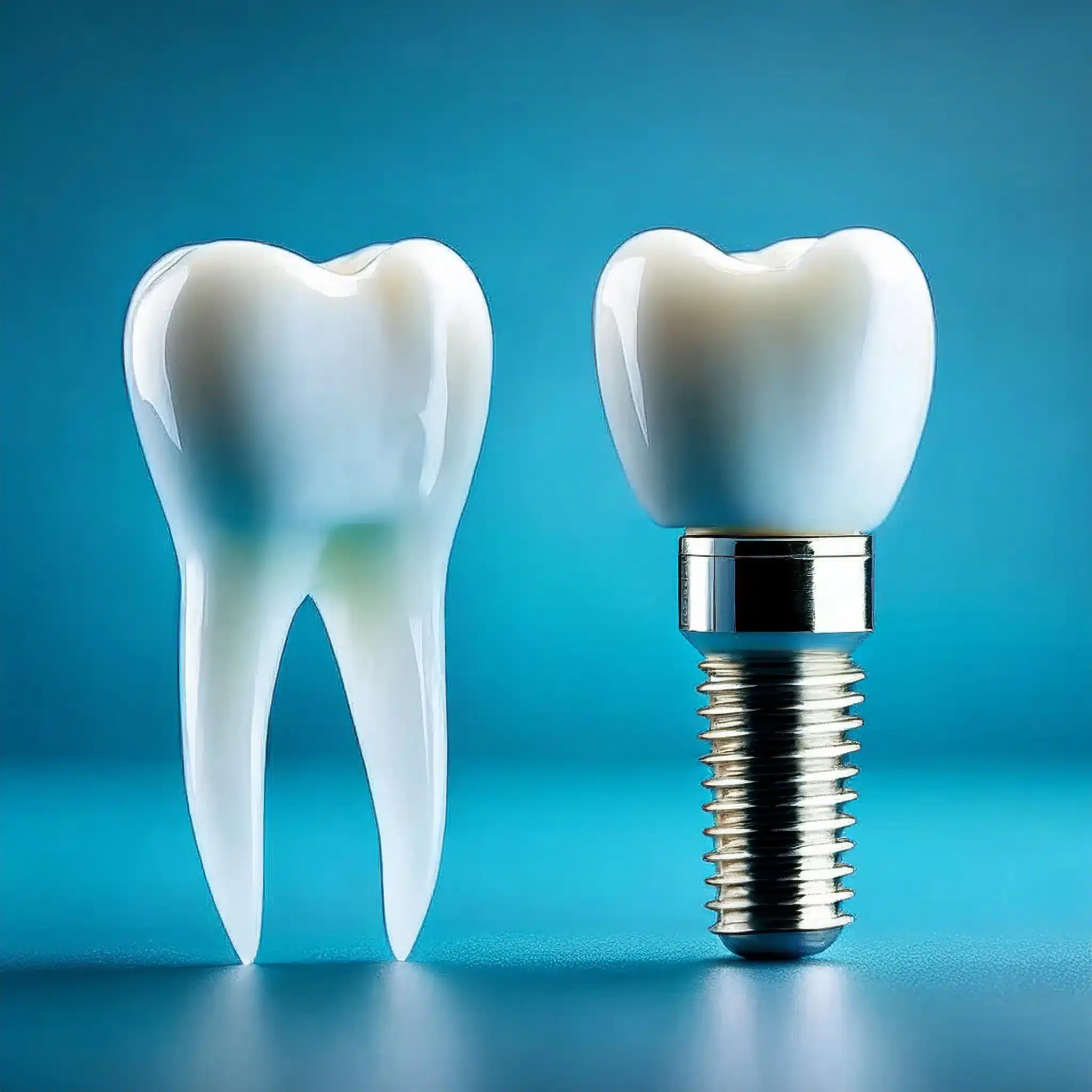
Dental Implant Repair and Maintenance
Proper care and maintenance are key to the longevity and success of dental implants.
This section explains the importance of proper care and the repair options.
Proper Care
Regular cleaning and maintenance is key to the health and longevity of dental implants.
Just like natural teeth, implants need daily brushing and flossing to prevent plaque buildup and gum disease.
Regular dental check-ups is also necessary to keep the implants in good condition.
Research shows that proper care can reduce risk of implant failure and complications (2).
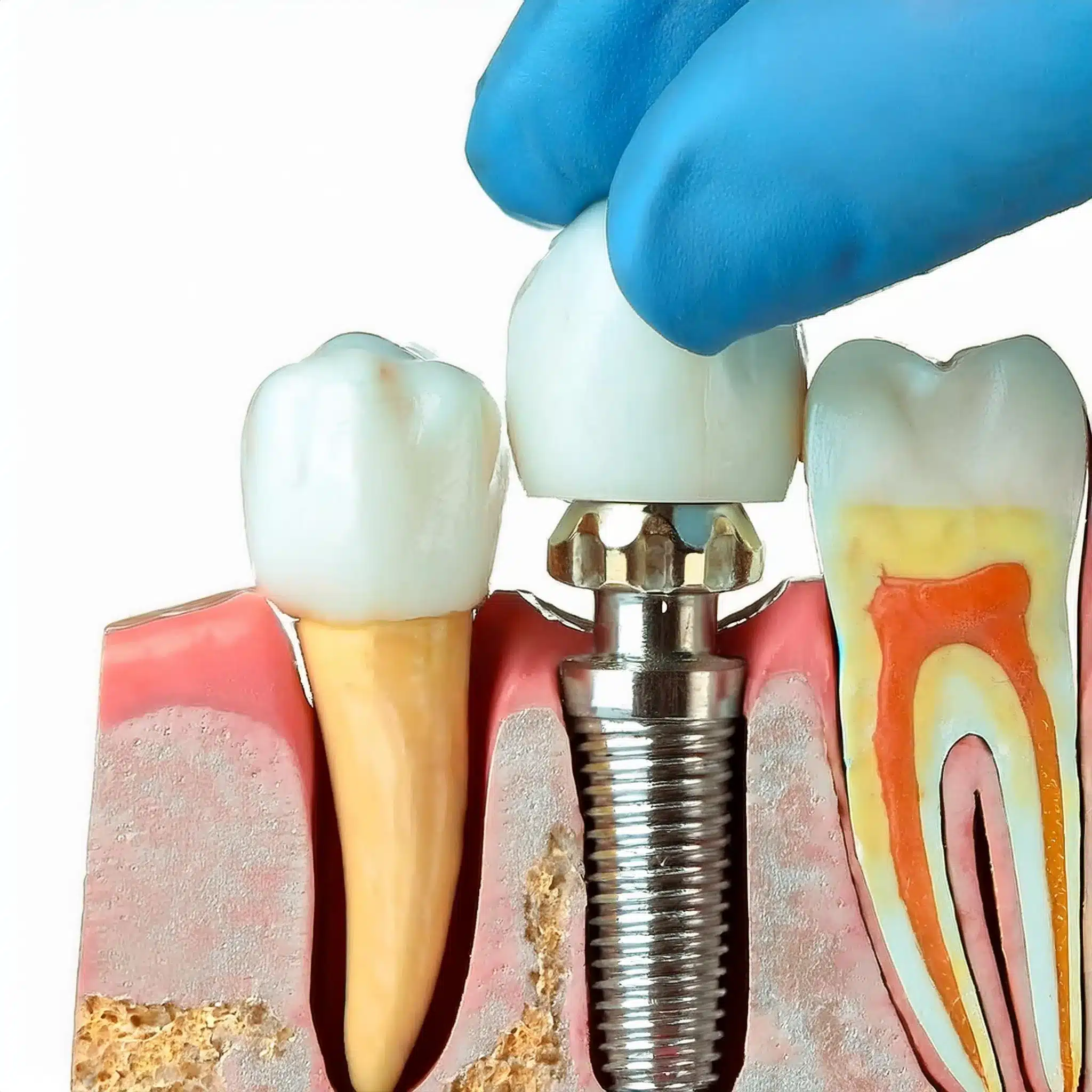
Dental implant repair
Dental implants are designed to be durable, but sometimes they need repair.
Common issues are loose or damaged crowns and, in rare cases, implant failure.
In such cases, dental professionals can offer various repair options, such as crown replacement or implant revision.
Research shows that prompt repair can prevent further complications and ensure the success of the implant (3).

Përfundim & Çështje kryesore
Marrëdhëniet kryesore:
Natural appearance and function, up to 20 years or more with proper care.
Prevent bone loss, keep adjacent teeth stable, and restore cosmetic appearance.
Success rate of 98.9% at 3 years and 94.0% at 15 years.
Proper care and maintenance are key to the longevity and success of dental implants.
konkluzioni:
Dental implants are a total solution for tooth replacement, natural aesthetics, long-lasting, and many health benefits. By knowing the benefits, pros and cons, and proper care, you can have a restored smile and healthy mouth for years to come.
FAQ
Referencat
(1) Buser D, Sennerby L, De Bruyn H, et al. Long-term stability of osseointegrated implants in the treatment of partially edentulous patients. Int J Oral Maxillofac Implants. 2012;27(4):755-761.
Neni: Long-term stability of osseointegrated implants in the treatment of partially edentulous patients
(2) Albrektsson T, Zarb G, Worthington P, et al. The long-term efficacy of currently used dental implants: a review and proposed criteria of success. Int J Oral Maxillofac Implants. 1986;1(1):11–25.
Neni: The long-term efficacy of currently used dental implants: a review and proposed criteria of success
(3) Esposito M, Grusovin MG, Coulthard P, et al. The efficacy of various bone augmentation procedures for dental implants: a Cochrane systematic review of randomized controlled clinical trials. Int J Oral Maxillofac Implants. 2006;21(5):696-710.
(4) Pjetursson BE, Thoma D, Jung R, et al. A systematic review of the survival and complication rates of implant-supported fixed dental prostheses (FDPs) after a mean observation period of at least 5 years. Clin Oral Implants Res. 2012;23 Suppl 6:22-38.
Jung RE, Zembic A, Pjetursson BE, et al. Systematic review of the survival rate and incidence of biologic, technical, and esthetic complications of single crowns on implants reported in longitudinal studies with a mean follow-up of 5 years. Clin Oral Implants Res. 2012;23 Suppl 6:2-21.
(6) Renouard F, Nisand D. Impact of implant length and diameter on survival rates. Clin Oral Implants Res. 2006;17 Suppl 2:35-51.
Neni: Impact of implant length and diameter on survival rates
